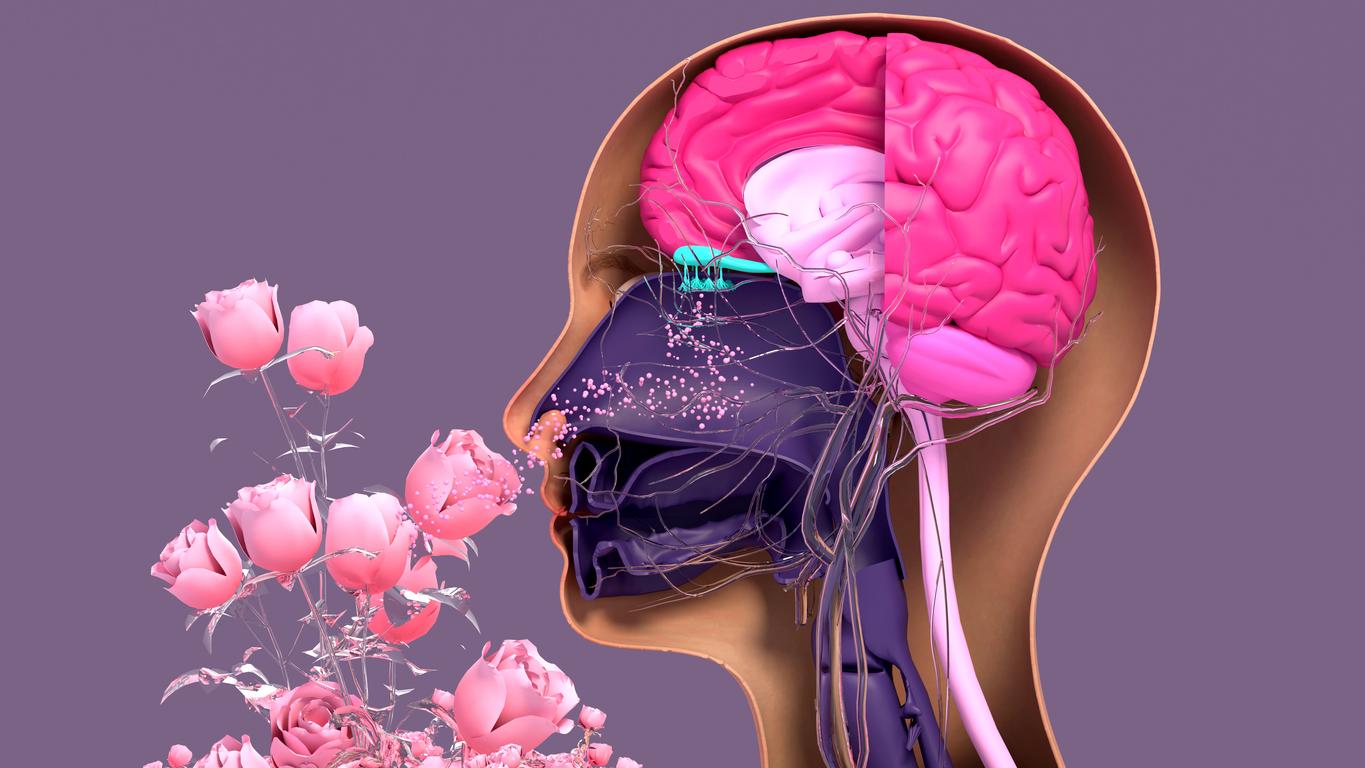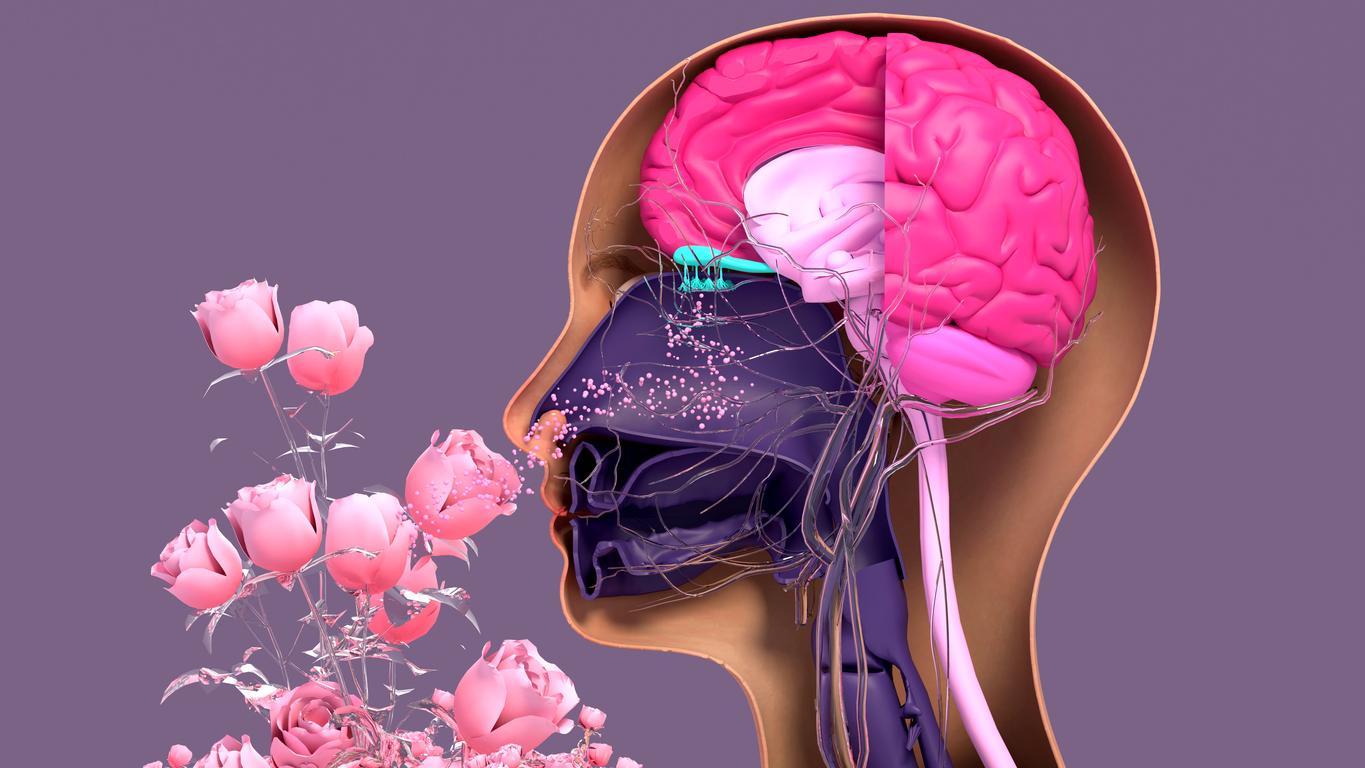Patients in neurological rehabilitation, or teenagers who have eating disorders, can improve their symptoms thanks to olfactory workshops. By stimulating the memory, the sense of smell makes it possible to recover capacities.

“New school bag … The canteen, my school uniform … Notebook … Pencil sharpener … Smell of wood … Chalk …” These words, it is by a hospitalized patient that they were pronounced, thanks to a smell that we made him smell: a smell of pencil. Like others, sometimes people with Alzheimer’s disease, sometimes serious accident victims in neurological rehabilitation, sometimes suffering adolescents, this patient was able to put words to a scent during an olfactory workshop.
What do such workshops consist of? In groups or in individual workshops, different smells are presented to patients. They then dig into the memories of their past, bring out emotions, places, colors … And if some at the base speak a lot, others on the contrary speak little, if at all. However, the smell will allow communication to begin with a smile, an expression.
Marie-France Archambault, at the origin of the first olfactory workshops, is a psychomotor therapist by training and has worked for 20 years in the perfume industry. She is part of CEW, for Cosmetic Executive Women, the association of women in the beauty industry which has set up free beauty centers in hospitals. The first olfactory workshops started in 2001 in the physical medicine and rehabilitation department of the Raymond Poincaré hospital in Garches, with the help of an olfactory library created with the creator and manufacturer of perfumes and food flavors. IFF. “It was a bit of a challenge to go back to the hospital with the nose, but we did it,” says Marie-France Archambault.
Listen to Marie-France Archambault, creator of CEW’s olfactory workshops: “We use a sensory door that was not used at all in a hospital environment. “
Today, workshops take place in eleven French hospitals or medical centers, in neurological rehabilitation, in geriatrics, in adolescents’ homes, in physical medicine and rehabilitation, or in oncology. The workshops take place in partnership with medical teams (physiotherapists, occupational therapists, speech therapists, dieticians, etc.). In 2012, 150 patients were able to benefit from it. Sabine Le Camus, olfactory therapist, leads olfactory workshops in hospitals as well as in homes for adolescents. “With young people in difficulty, I lead a mediation workshop. With the smells, we touch the intimate. This makes it possible to tackle many “difficult” questions: drugs, alcoholism, sexuality, ”she explains. Or, when taking care of neurological rehabilitation patients, she explains that she makes them smell the odors of everyday life in order to stimulate memory and language.
Listen to Sabine Le Camus, olfactory therapist: “I make smells of life, current to stimulate memory and language. “
Thus, for example, an 18-year-old patient, hospitalized following a severe head trauma occurring during an assault, progresses over the sessions accompanied by the speech therapist who stimulate her sense of smell over a long period. Initially unable to identify an odor, she was able over time to recognize the different families or categories of odors… There is also this 38-year-old Chinese woman, for whom everything changed after a stroke. At the start of his sessions, his inability to initiate simple tasks is total. She’s running out of words. Over the course of the olfactory workshops, however, in collaboration with a speech therapist, she progressed until the day when, having felt an olfactory touch of incense, she managed to discuss the way she used it at home and the importance of this ritual. With the incense, this woman had plunged back into a universe that she mastered perfectly.
If the objective of the workshops was fun at the start, they are now for therapeutic purposes. “But be careful,” says Marie-France Archambault, “it is not odors that heal. We want to show what this brings at the psychological and mental level as well as at the level of the recovery of certain patients ”. The olfactory workshops do not lack legitimacy with hospitals, however several protocols were initiated this year in order to conduct studies that will bring together scientific data on the subject of olfactory therapy. For the moment, France is the only one to the knowledge of the CEW to conduct such workshops after sick people. Other countries are starting to take a close interest in it, such as the United Kingdom, pursuing the same objective: “to make patients smell the scents of life in order to bring them back to life”, as Marie-France Archambault sums it up. .
.

















